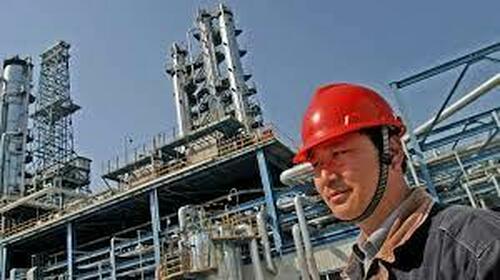China’s Fuel Exports Plunge
By Charles Kennedy of OilPrice.com
China’s exports of gasoline and diesel slumped in the first half of 2022, per customs data out on Monday, as Chinese authorities continued to work to reduce overseas sales of fuels and allocated lower export quotas to refiners.
Gasoline exports slumped by 42 percent annually in the first half of this year compared to the same period of 2021, according to Chinese customs data cited by Reuters. Diesel exports crumbled by an even larger percentage—they were down by 84 percent between January and July compared to the first half of 2021.
This month, China’s fuel exports are expected to rebound after the government has recently allocated a new batch of export quotas to refiners, according to industry consultancy JLC quoted by Bloomberg.
The latest batch of export quotas has been issued, but combined with other quotas so far this year, overall export quotas from China are much lower than last year’s.
At the beginning of this month, China issued the latest batch of fuel export quotas for refiners, and total quotas so far this year are 39 percent lower than the collective quotas this time last year—a sign that Chinese fuel exports are unlikely to ease the tight fuel market globally.
The Chinese authorities have approved the latest batch for a total of 5 million tons, Reuters reported, citing sources. That would be enough for the refiners given quotas to make money with sales on the export market, but not enough to ease the global crunch in fuel supply.
China started this year by considerably reducing the allowances for fuel exports in the first export quota batch for 2022, signaling its intention to limit fuel sales abroad and curb excessive refinery output.
Exports were reportedly limited in the aftermath of the Russian invasion of Ukraine, as Chinese authorities were said to have asked state refiners in the country to consider halting diesel and gasoline exports in April due to heightened concerns about oil supply.
Chinese diesel and gasoline exports so far this year have been well below last year’s, while COVID-related lockdowns hurt demand in the spring, swelling domestic Chinese inventories.
Tyler Durden
Tue, 07/19/2022 – 17:25

